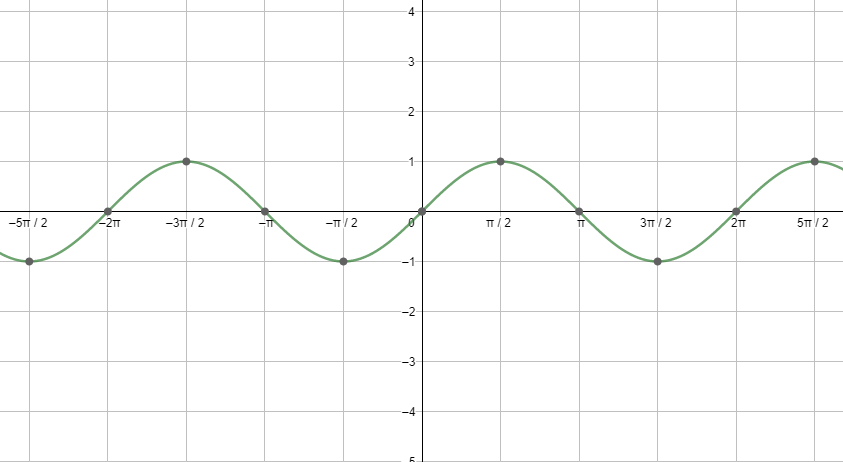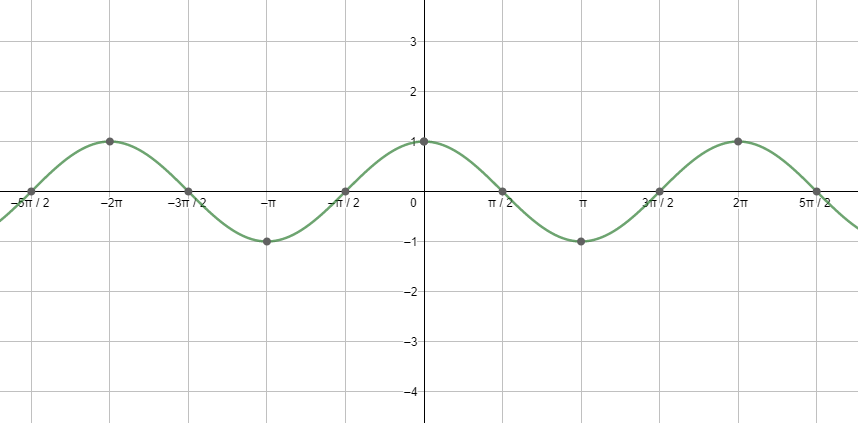Question
Question: If \(\sin \theta +{{\sin }^{2}}\theta +{{\sin }^{3}}\theta =1\) , then show that \({{\cos }^{6}}\the...
If sinθ+sin2θ+sin3θ=1 , then show that cos6θ−4cos4θ+8cos2θ=4 .
Solution
Hint: Use the property that cos2A+sin2A=1 to simplify the equation sinθ+sin2θ+sin3θ=1 . Start by simplification of the equation followed by squaring both sides of the equation. Finally, convert all the terms to the cosine form to get the required result.
Complete step-by-step answer:
Before moving to the solution, let us discuss the periodicity of sine and cosine function, which we would be using in the solution. All the trigonometric ratios, including sine and cosine, are periodic functions. We can better understand this using the graph of sine and cosine.
First, let us start with the graph of sinx.

Next, let us see the graph of cosx.

Looking at both the graphs, we can say that the graphs are repeating after a fixed period i.e. 2πc . So, we can say that the fundamental period of the cosine function and the sine function is 2πc=360∘
Now to start with the solution to the above question, we will try to simplify the equation given in the question.
sinθ+sin2θ+sin3θ=1
⇒sinθ+sin3θ=1−sin2θ
Now we know that 1−sin2θ=cos2θ . So, we get
sinθ(1+sin2θ)=cos2θ
Again using the formula 1−cos2θ=sin2θ , we get
sinθ(1+1−cos2θ)=cos2θ
⇒sinθ(2−cos2θ)=cos2θ
Now, if we square both sides of the equation, we get
sin2θ(2−cos2θ)2=cos4θ
Again using the formula 1−cos2θ=sin2θ and the formula (a+b)2=a2+b2+2ab , we get
(1−cos2θ)(22+cos4θ−4cos2θ)=cos4θ
⇒(1−cos2θ)(4+cos4θ−4cos2θ)=cos4θ
⇒4+cos4θ−4cos2θ−4cos2θ−cos6θ+4cos4θ=cos4θ
Now, if we rearrange the terms of the equation according to our need, we get
cos6θ−4cos4θ+8cos2θ=4
So, we can conclude that the equation cos6θ−4cos4θ+8cos2θ=4 is proved.
Note: Be careful about the calculation and the signs of the formulas you use as the signs in the formulas are very confusing and are very important for solving the problems. Also, it would help if you remember the properties related to complementary angles and trigonometric ratios.
